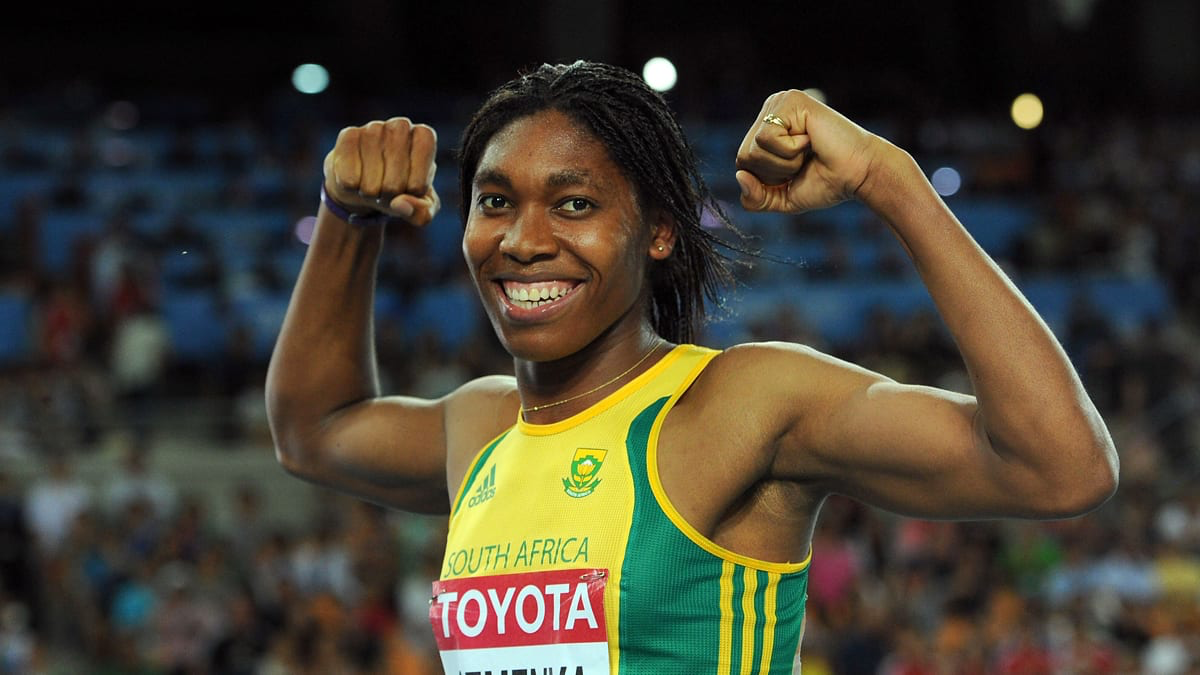Not man, woman; but she has a special case: Who is Caster Semenya?
When she won the gold medal, they said she was a man. They claimed it was advantageous. They brought up that the testosterone level in her body was very high. They saw Caster Semenya as a guinea pig on which they could experiment. They wanted to examine her body.

When she was a little girl, she wanted to be a soldier.
Protecting her homeland; she wanted to represent her country. She wanted to be a hero.
Where she was born, most girls do not dream of becoming soldiers. Women are respected in South Africa, but there is a perception that joining the army is not a job for girls.
She grew up in the countryside with her siblings. They were all smart kids, but Caster Semenya was a bit naughty. She played football every day. There were no women's teams so she would play with the men. They let her play with them because they realized she was so good.
Mokgadi Caster Semenya (born 7 January 1991) is a South African middle-distance runner and winner of two Olympic gold medals and three World Championships in the women's 800 metres. She first won gold at the World Championships in 2009 and went on to win at the 2016 Olympics and the 2017 World Championships, where she also won a bronze medal in the 1500 metres. After the doping disqualification of Mariya Savinova, she was also awarded gold medals for the 2011 World Championships and the 2012 Olympics.
Her mother was a teacher, and she took care of Caster Semenya and her siblings. She was at home most of the time. Her father worked in Victoria and only came home once a month. They raised Caster Semenya with respect and always told her that she could do whatever she wanted.
He started running when she was 12 years old. She was quite good in this field. She was happy while running. She did not see running as a job, that is, she did not think of making money.
In 2009, she had the opportunity to represent her country, South Africa. At the age of 18, she competed in her first professional event in the 800-meter race in Berlin. It was the IAAF World Championship. She won the gold. She won the gold medal in her first professional race. She was the best in the world.
But people did not congratulate Caster Semenya. They didn't say that. They said she was a man. They claimed it was advantageous. They brought up that the testosterone level in her body was very high.
They didn't mention that she was the first black woman from South Africa to win a gold medal at the world championships.
They did not see Caster Semenya as an 18-year-old woman. They didn't see her as a young woman who came from the countryside and became the best in the world.
They saw Caster Semenya as a guinea pig on which they could experiment. They wanted to examine her body.
They ran tests on her body. They asked her to take testosterone-lowering drugs and change her body.
Semenya won her first gold medal at the 2008 Junior Commonwealth Games with a time of 2:04.23 in the 800-meter race. At the 2009 African Youth Athletics Championships, she won the gold medal in the 800 meters with a time of 1:56.72 and in the 1500 meters with a time of 4:08.01. Her time in the 800 meters was her best time in 2009.
At the 2009 World Athletics Championships, she improved her best time of the year in the 800 meters by 1 second and won the gold medal with a time of 1:55.45.
What made her come to the fore was the rumors about whether she was a man or a woman, rather than her degrees and medals. Following these rumors, the International Association of Athletics Federations (IAAF) announced that Semenya would be subjected to a gender test. IAAF stated that as a result of the tests it carried out, there was no situation that would prevent Semenya from competing, but regarding the rumors, Semenya had a special situation that could not be explained and there was no need to explain it.
